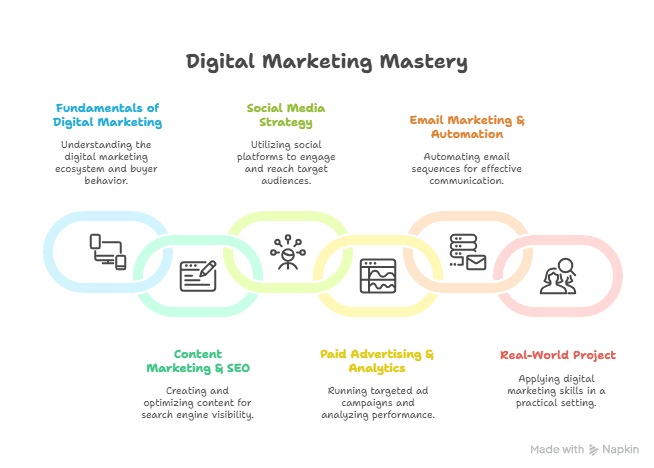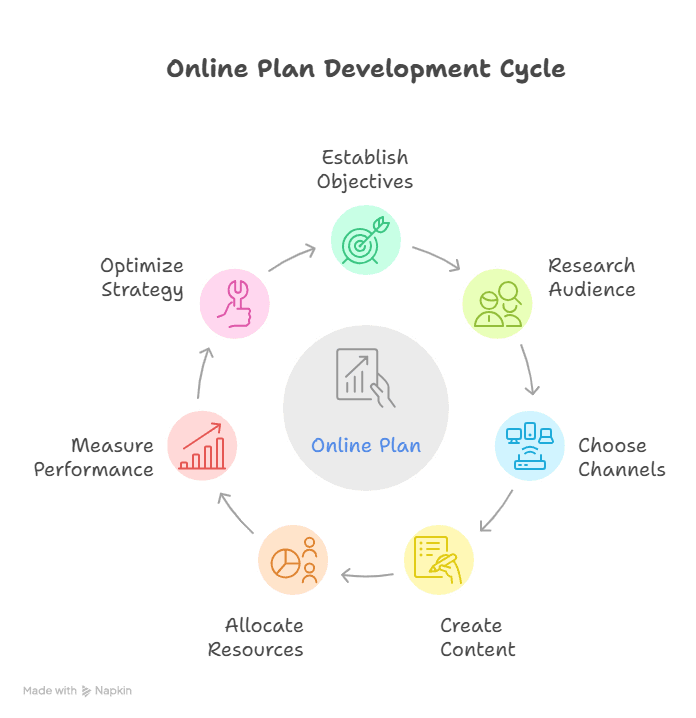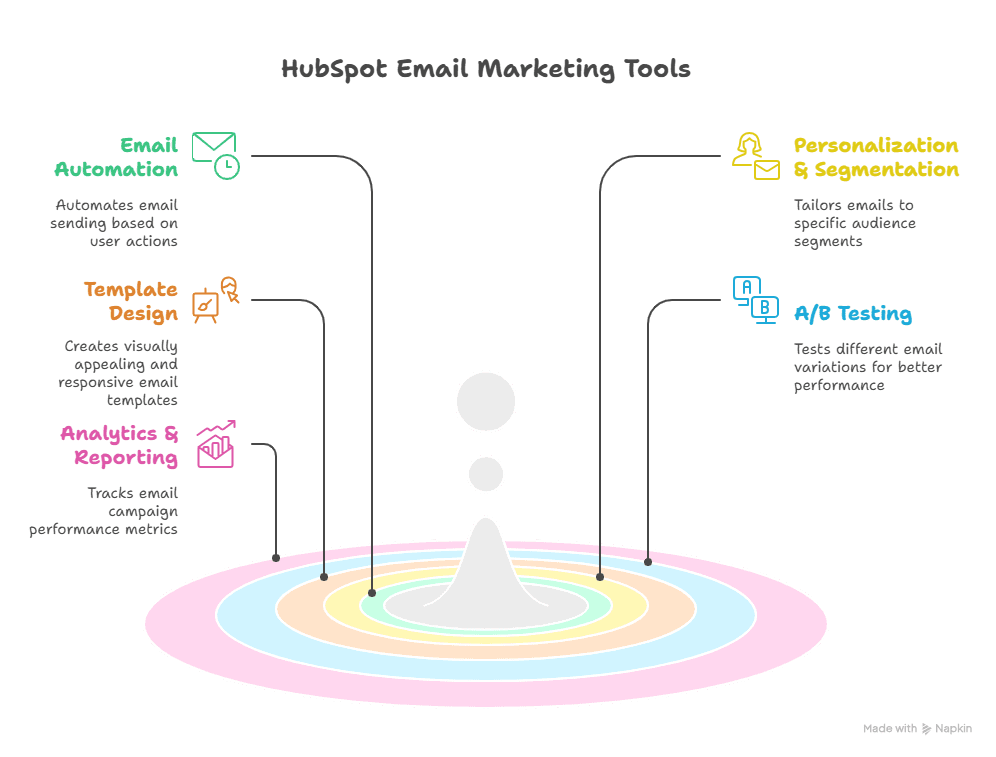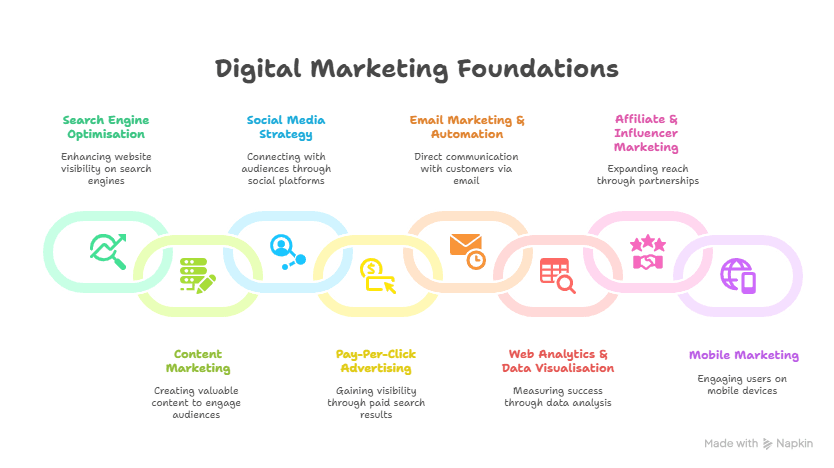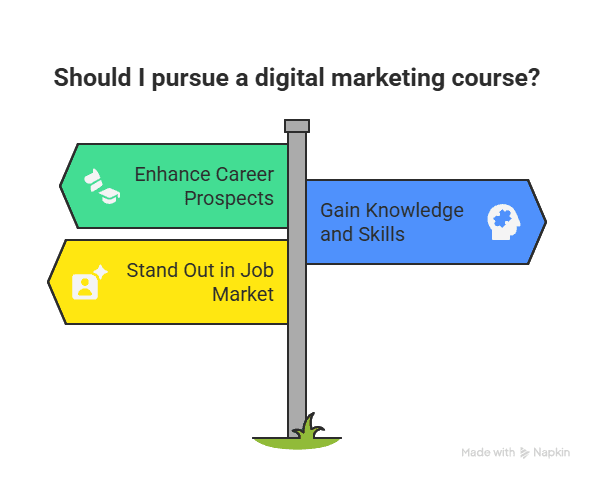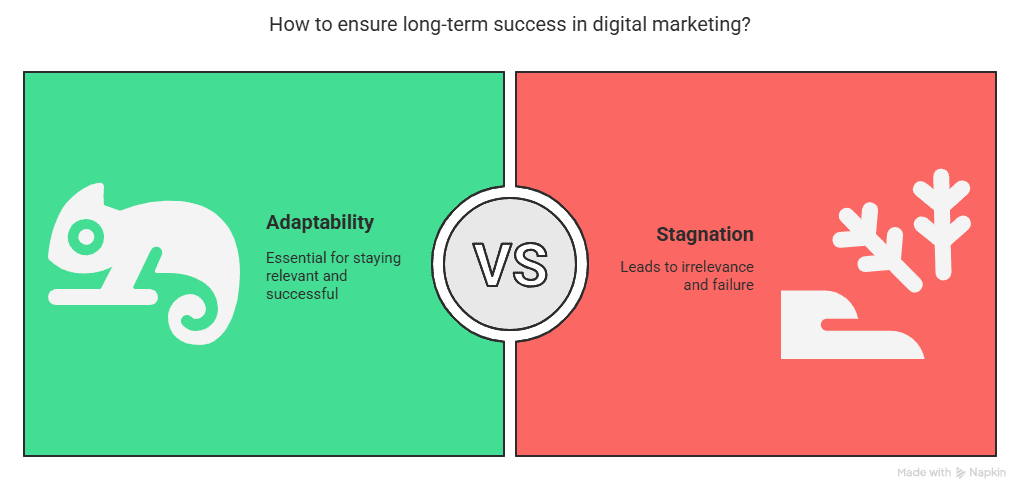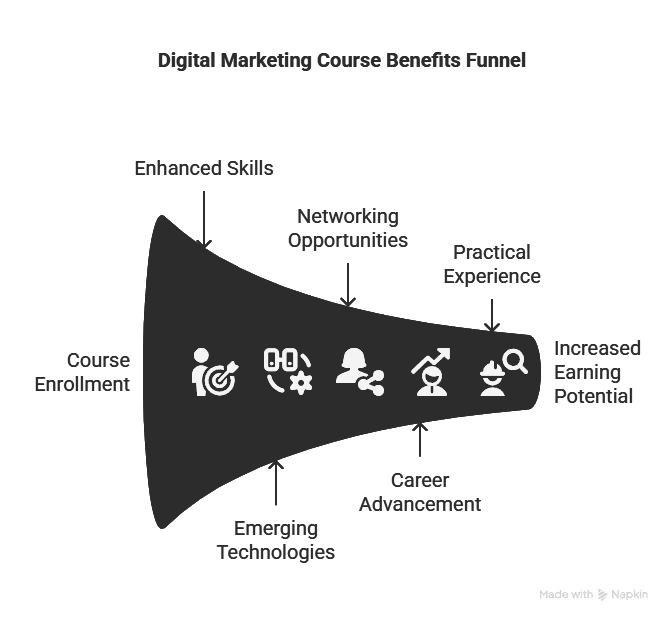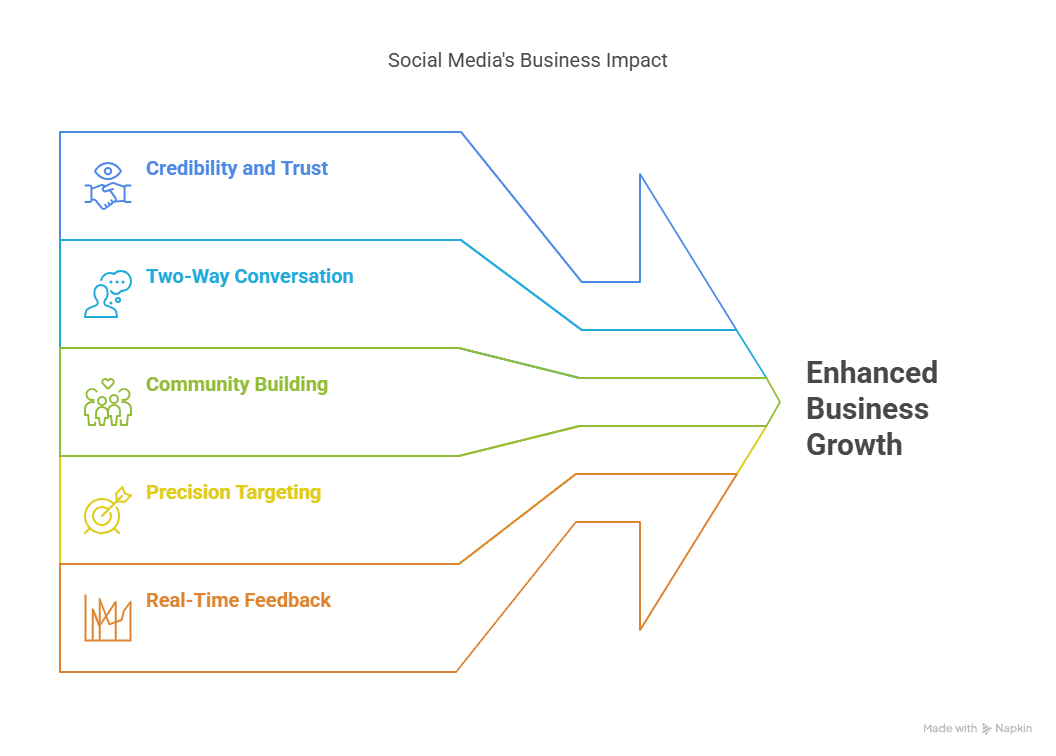Digital marketing is speeding along at a breakneck pace. Digital Marketing Success in 2025 will go to those brands that embrace automation, immersive content, data-based campaigns, and privacy-first strategies.
Digital marketing trends 2025, establish new online marketing strategies, and provide you with performance marketing strategies that work.
This guide will tell you about the future of digital advertising, latest online marketing strategies and performance marketing techniques that you need to know.
Table of Contents
- The Top Trends Shaping Digital Marketing
- Building Data-Driven Digital Campaigns
- Successful Digital Marketing Strategies
- AI & Automation: The Future Digital Ad
- Hands-On Digital Marketing Strategies for 2025
- A Disruptive Strategy: Immersive AR/VR Experiences
- Focus: MyCaptain Digital Marketing Programme
- Frequently Asked Questions
- Conclusion & Key Takeaways
The Top Trends that are Revolutionising Digital Marketing in 2025
- AI-Powered Personalisation: Machine-learning models recommend relevant content and offers to each individual based on their behaviour.
- Short-Video Hegemony: TikTok, Instagram Reels and YouTube Shorts own eyeballs in 60 seconds.
- Voice Search Optimisation: voice search on smart speakers and car infotainment via natural language is growing at rates that are simply mind-boggling.
- Interactive & Immersive Content: Quizzes, polls, AR filters and frictionless VR tours command and hold attention.
- Privacy-First Advertising: With no third-party cookies, contextual and consent-based targeting goes mainstream.
Building Data-Driven Digital Campaigns
There must be real-time measurement of metrics. Real-time bid, creative and audience optimization can be attained through data-driven digital campaigns.
Worldwide digital ad expenditures in 2025 will be USD 700 billion, a 12 percent year-over-year increase, according to Statista, which indicates the shift towards performance marketing (https://www.statista.com).
Key metrics to measure
- Customer Acquisition Cost (CAC) – The cost of acquiring new customers.
- Return on Ad Spend (ROAS) – Revenue in return for each dollar expended on an ad.
- Lifetime Value (LTV) – Revenue to be earned from a customer over the customer’s lifetime.
- Click-Through Rate (CTR) – Impression clicks on an ad.
| Metric | Definition | Business Impact |
| CAC | Cost of one new customer acquisition | Impacts large budgeting |
| ROAS | Revenue earned for every advertisement spent | Impacts campaign value |
| LTV | Revenue to be earned from one customer | Impacts retention versus acquisition spend |
| CTR | Clicks per impression | Monitors ad relevance and creative performance |
Track these metrics in tandem across such platforms as Google Analytics 4 or the HubSpot dashboard (https://www.hubspot.com ) and you’ll know every pound is driving growth.
Winning Strategies for Performance Marketing
In performance marketing, you pay only for outcomes—clicks, leads or sales. Key tactics include:
- Programmatic Advertising
- Automated bidding on ad exchanges ensures real-time optimisation.
- Studies show programmatic can reduce wasted impressions by up to 20 percent (https://www.smartinsights.com).
- Automated bidding on ad exchanges ensures real-time optimisation.
- Affiliate & Partner Programmes
- Collaborate with niche sites or influencers on a pay-per-sale basis.
- Minimises upfront costs and extends reach.
- Collaborate with niche sites or influencers on a pay-per-sale basis.
- Dynamic Creative Optimisation (DCO)
- AI stitches together headlines, images and calls-to-action unique to each user.
- Reported to uplift conversions by as much as 30 percent (https://www.wordstream.com).
- AI stitches together headlines, images and calls-to-action unique to each user.
- Retargeting & Sequential Messaging
- Guide browsers through a tailored journey, from educational content to discount offers.
- Increases conversion probability by reminding prospects of your brand at each stage.
- Guide browsers through a tailored journey, from educational content to discount offers.
AI & Automation: The Future of Digital Adverting
Automation and artificial intelligence are cornerstones of the future strategy
- Automated Bidding – Google Adwords, and others, apply machine learning to bid maximum ROI automatically.
- Predictive Analytics – Software determines who would likely convert out of your audience without manual work.
- No-Code AI Builders – Marketers create chatbots, email campaigns and even ad copy with no developer now.
Smart Insights predicts 40 percent improved campaign performance when AI solutions are optimized by Q4 2025 (https://www.smartinsights.com ).
5 Online Marketing Tactics to Try in 2025
Adopt these latest online marketing strategies to keep ahead:
- Micro-Influencer Collaborations
- Niche specialists often boast engagement rates 60 percent higher than mega-influencers.
- Niche specialists often boast engagement rates 60 percent higher than mega-influencers.
- Ephemeral Content
- Stories and fleeting posts tap into FOMO and drive rapid interaction.
- Stories and fleeting posts tap into FOMO and drive rapid interaction.
- Conversational Chatbots
- Provide instant support and push product recommendations 24/7.
- Provide instant support and push product recommendations 24/7.
- Shoppable Social Posts
- Users buy directly from Instagram or Facebook feeds with one tap.
- Users buy directly from Instagram or Facebook feeds with one tap.
- Account-Based Marketing (ABM)
- Hyper-targeted campaigns tailored to high-value enterprise clients.
A New Way: Engaging AR/VR Experience
A fresh perspective involves integrating augmented reality (AR) and virtual reality (VR):
- AR Try-On: Cosmetic and fashion brands let customers virtually test products.
- VR Showrooms: Real-estate agencies offer immersive property tours.
Forbes reports 70 percent of marketers will invest in AR campaigns by late 2025, citing higher engagement and brand recall (https://www.forbes.com).
Highlight: MyCaptain Digital Marketing Program
The MyCaptain Digital Marketing Programme from Imarticus Learning combines theory with hands-on projects:
- Live Case Studies: Analyse 2025 campaigns from global brands.
- Expert Mentorship: One-to-one guidance from industry veterans.
- Capstone Project: Execute a full-funnel campaign for a real client.
- Certification: Recognised by recruiters across sectors.
Whether you’re learning digital marketing from scratch or sharpening your skills, this course bridges the gap between theory and practice.
Frequently Asked Questions
What is AI personalisation?
Machine-learning sites personalise content and promotions based on a specific user’s data.
How do I optimise for voice search?
Speak naturally, use question-style keywords and concise answers.
Why would I run AR/VR campaigns?
They create memorable, engaging experiences that drive greater engagement and retention.
How do I measure campaign performance?
Google Analytics 4, HubSpot, Adobe Analytics and Smart Insights.
Micro-influencers: why are they a good fit?
Their additional engagement and speciality relevance are more likely to generate ROI.
Can chatbots drive conversions?
Quick answers to questions keep the lead in the pipe and drive sales.
What is the benefit of programmatic advertising?
It automatically wins the auction and displays ads, reducing wasteful spending and improving targeting.
Conclusion & Key Takeaways
Creativity and agility in 2025 marketing pillars with data skills. Embracing AI, achieving data-driven digital marketing, connective content and privacy-first solutions will cast the rest of them in the shadow and yield quantifiable growth.
Key takeaways
- Data is King – CAC, ROAS, LTV and CTR to drive every single decision.
- Automate Relentlessly – AI for bidding, segmentation and creative optimisation needs to be harnessed.
- Innovate with Experience – AR/VR and short-form video capture the imagination of individuals today.
Ready to kick-start your career? Enrol now in the MyCaptain Digital Marketing Program by Imarticus Learning and lead 2025!

